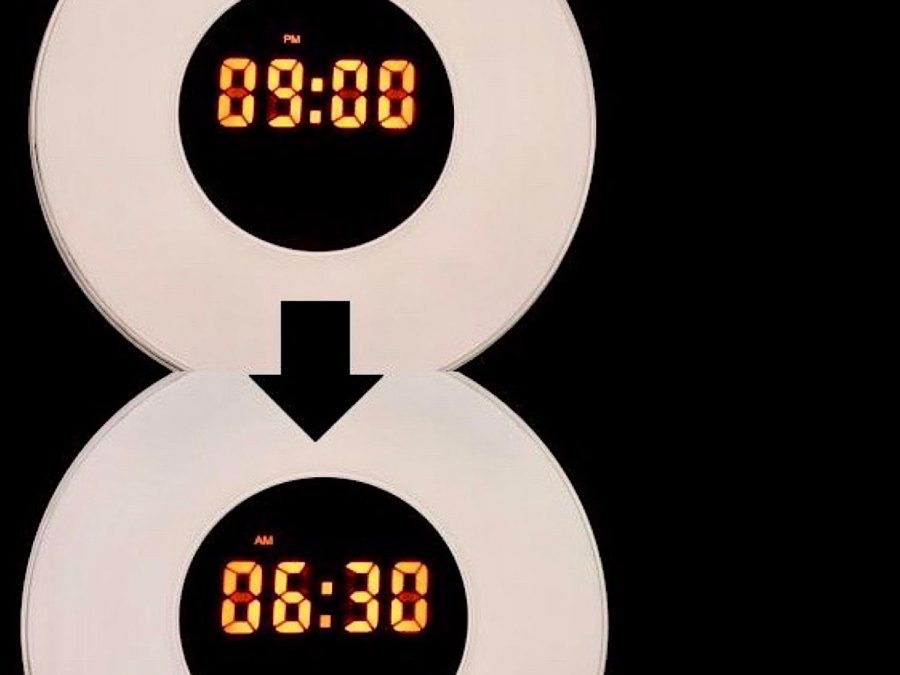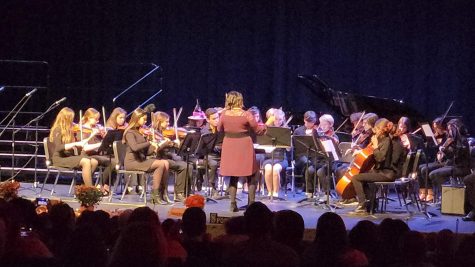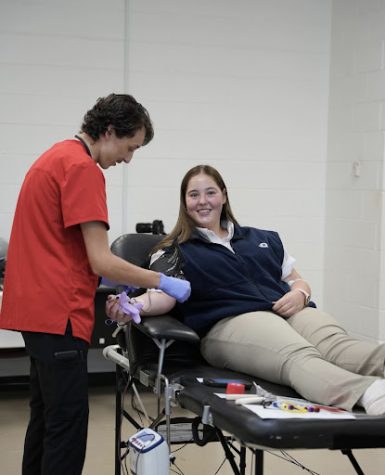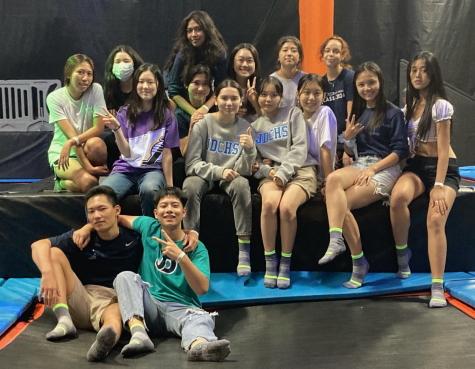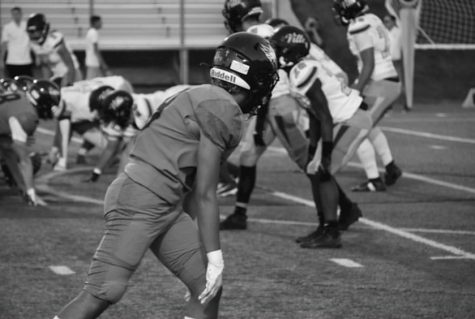Too Much Work, Not Enough Sleep
Students develop unhealthy habits to cope with the amount of work and commitments they have.
Original Graphic by Ellie Kuehn
The average time students stay up to pull an all-nighter. This time used to complete homework can be used to actually sleep.
Students these days have so much pressure to perform well in school, as well as in outside activities, that they don’t sleep. Between hours of homework, upon hours of sport practice and school events, there is little time to get a good night’s sleep and have enough energy to do it all again. Kids face criticism from teachers, parents, and oftentimes themselves when it comes to getting good grades and ‘doing well’ in their activities, which isn’t always attainable with the amount of time in a given day.
The recommended amount of sleep for a teenager in one night is eight to ten hours, which means a student should be in bed by at least 8 p.m., to be awake by 6 a.m. “I normally go to bed at 11:30 on a school night, but it depends on what I have to do that night. I usually have four to five hours of homework after seven hours of school,” Junior Emily O’Nash said. “I always think about pulling all-nighters, and can’t even count how many I have done in the last year,” O’Nash continued. “We are given too much homework, along with extracurriculars that the school encourages us to participate in. We do not have the time to do the work, unless we stay up all night,” O’Nash said.
There are countless different ways than pulling all-nighters to cope with the amount of schoolwork, and pressures of extracurriculars, but it usually just develops bad habits. “Schoolwork affects my sleep because I take a nap after school so I have enough energy to complete it all, but then when I actually have to go to bed I’m not tired, so I end up being awake for longer,” Junior Ellie Abundo said. “I would like to just come straight home, do my homework, and then sleep. But because I have so much, I have to take a nap to get it all done,” Abundo finished.
Some students recognize that sleep is more important than grades and GPA. “To be honest, I value sleep more than getting my homework done. I go to bed by 10:30 or 11 at night,” Junior Payton Bouwhuis said. “But even by putting my health above my homework, it still cuts into the time I could use to sleep and be ready for the next day,” Bouwhuis continued. “It is hard to keep everything maintained and get enough sleep,” Bouwhuis said.
Intentions behind all-nighters within students is clear, to finish homework and relieve the stresses placed upon them by school life. If teachers want students to have enough energy to actively participate in class, have their homework done, and get good grades, they should give less work, or at least communicate with their students to help lessen workloads, and overall stress.
Until the standards for students are not so unattainable, they will most likely have to keep doing all-nighters, even though they are unhealthy and lead to more problems.

